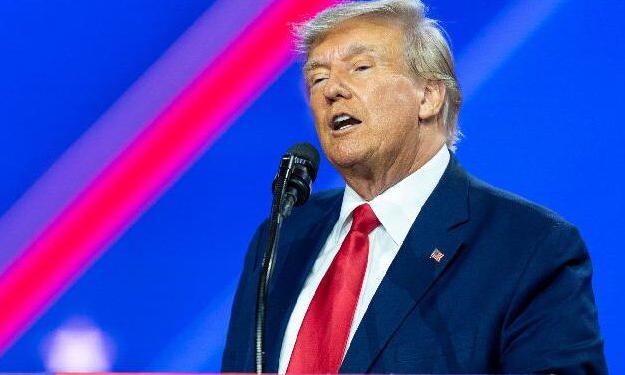
Trump warns end of tariff exemption for pharmaceuticals shortly
text_fieldsNew York: US President Donald Trump has warned that the exemption for pharmaceuticals, a major Indian export, from his repressive retaliatory tariffs will end soon.
“We're going to be announcing very shortly a major tariff on pharmaceuticals,” he said on Tuesday night shortly before his levies on most US imports were to come into force.
US President Donald Trump recently spoke at a National Republican Congressional Committee dinner in Washington, where he called out China but notably didn't mention India. This omission comes despite India sending a significant 31.5% of its exports to the US, making it a major trade partner.
Most other exports from India will be hit with the 37 per cent reciprocal tariffs he announced last Wednesday.
Trumpeting the announcement, President Trump said, “That's breaking news, ladies and gentlemen.”
When the drug companies hear about the tariffs, "They will leave China; they will leave other places, because they have to sell, and most of their product is sold here, he said.
“They're going to be opening up their plants all over the place, in our country,” he said.
Trump recently announced reciprocal tariffs, exempting key industries crucial to the US economy. These exemptions include pharmaceuticals, copper, semiconductors, lumber, bullion, energy and energy products, and certain minerals.
The reprieve for the pharmaceuticals was because imported drugs, especially the generics from India, help hold down the costs of the US healthcare system, which is one of the most expensive in the world.
There have been warnings that the US health system will face higher costs if tariffs are imposed on pharmaceuticals.
ING Bank said that “in the absence of a deal with India, we think Trump’s tariffs will mostly drive up drug prices for US consumers” because of the wide use of generics for which India is the major supplier.
“The global supply chain for generic and biosimilar medicines is critically important for US patients,” John Murphy, president of the Association for Accessible Medicines, said earlier this year.
“Generic manufacturers simply can’t absorb new costs” due to the tariffs, he said.
“Our manufacturers sell at an extremely low price, sometimes at a loss,” he said.
India and the US are trying to work out a bilateral trade agreement, which could soften the impact of tariffs.
External Affairs Minister S. Jaishankar and Secretary of State Marco Rubio, during a call, agreed on the “early conclusion” of such an agreement.
IQVIA, a healthcare data and analytics company, said that four out of ten prescriptions filled in the US in 2022 were from Indian companies.
“Out of the top 10 therapy areas by prescription volume, Indian companies supplied more than half of the prescriptions for five: hypertension, mental health, lipid regulators, nervous system disorders, and antiulcerant”s, it said.
(inputs from IANS)






